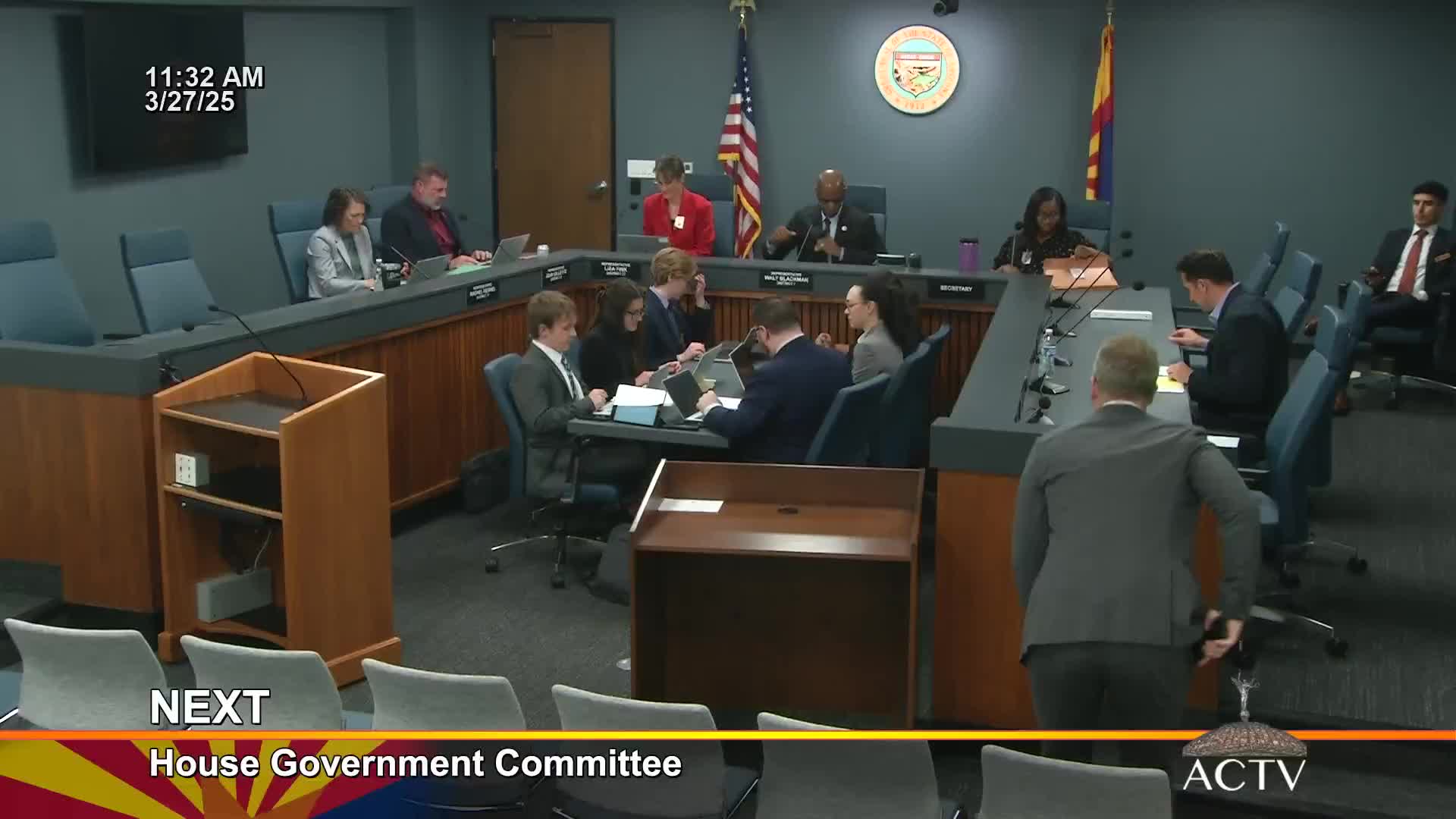Article not found
This article is no longer available. But don't worry—we've gathered other articles that discuss the same topic.
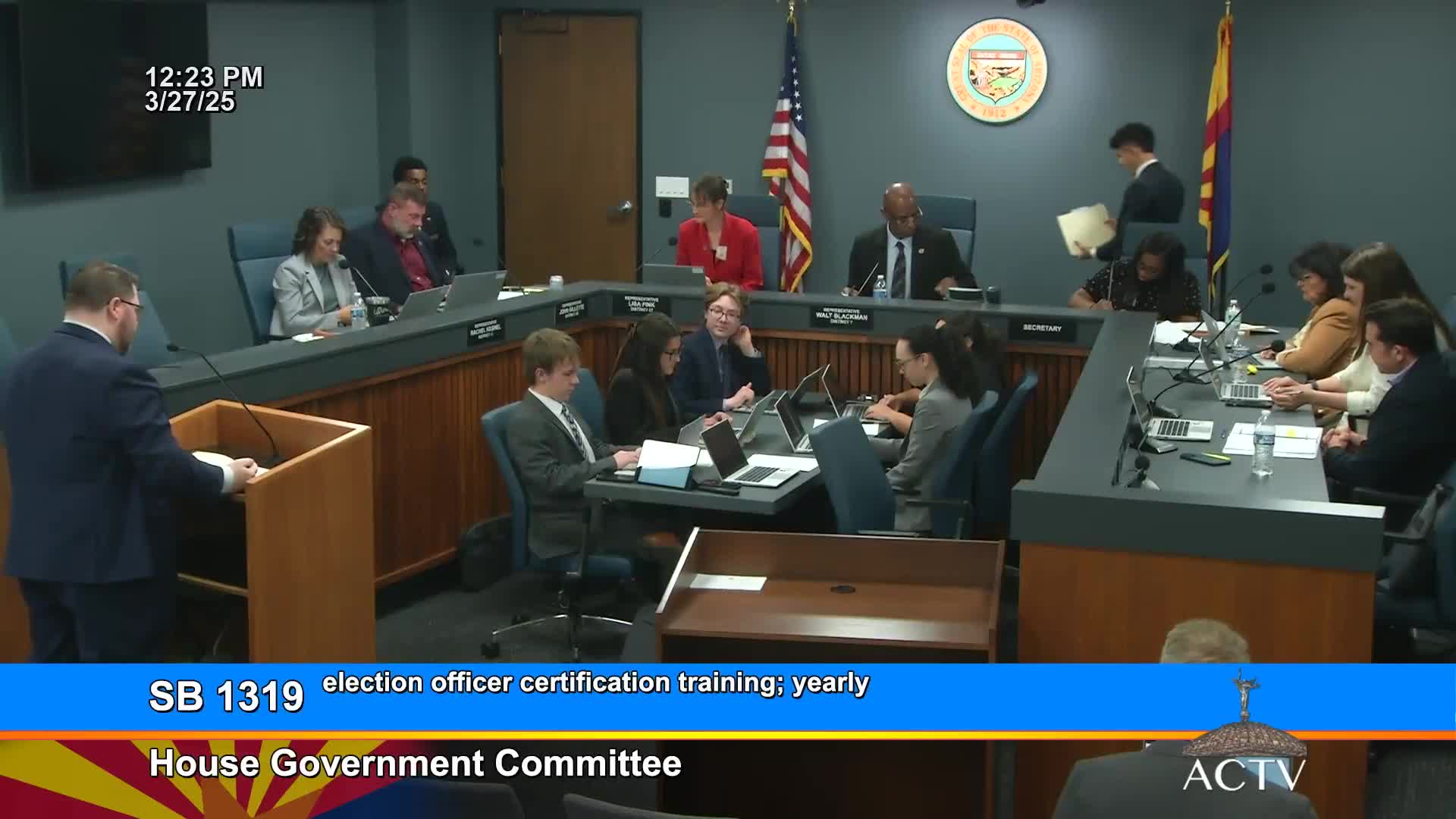
Committee returns SB 1319 changing election-officer certificate dates despite member concerns
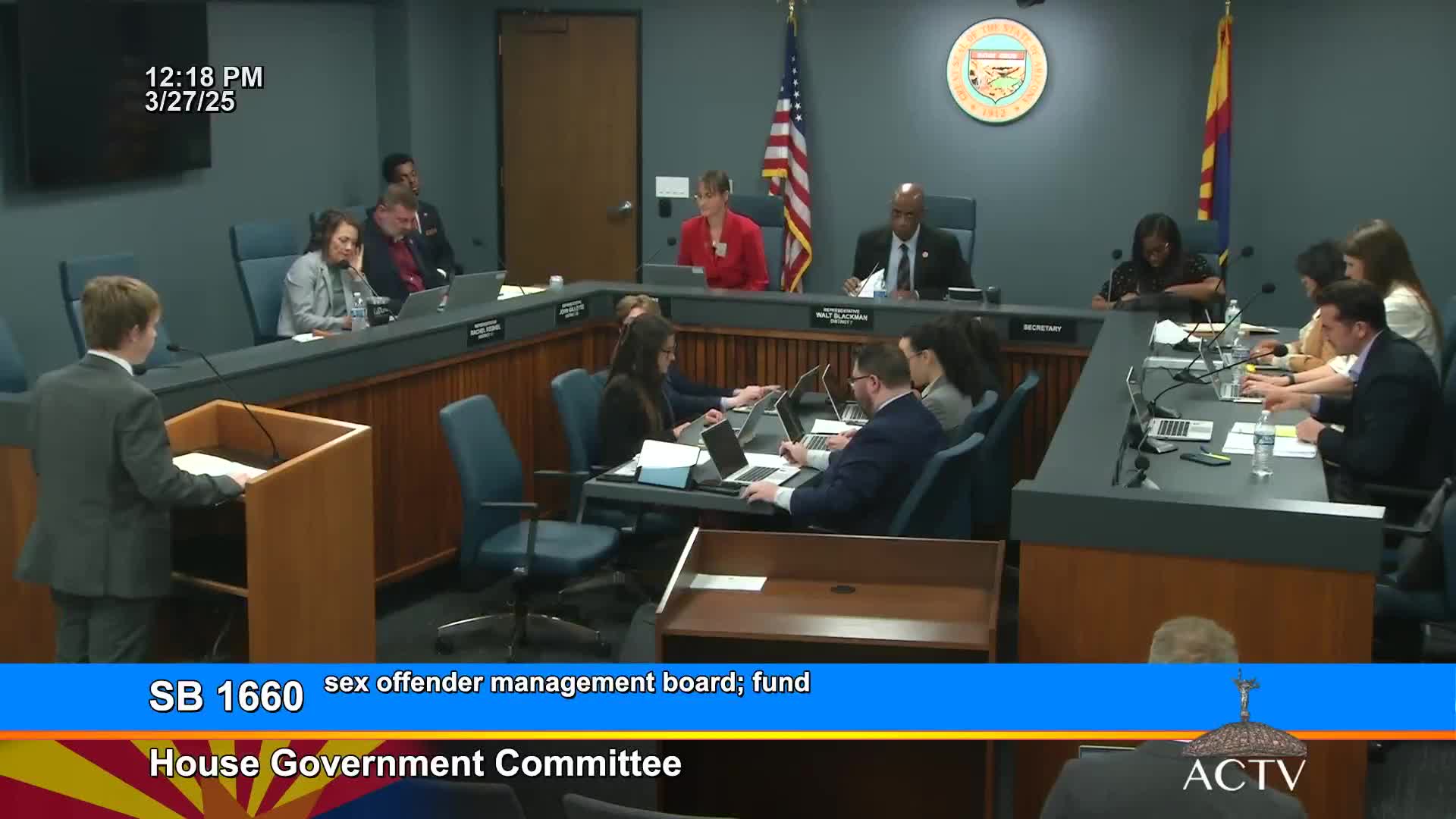
SB 1660 cleared unanimously to create offender surcharge fund, adds staff and assessments
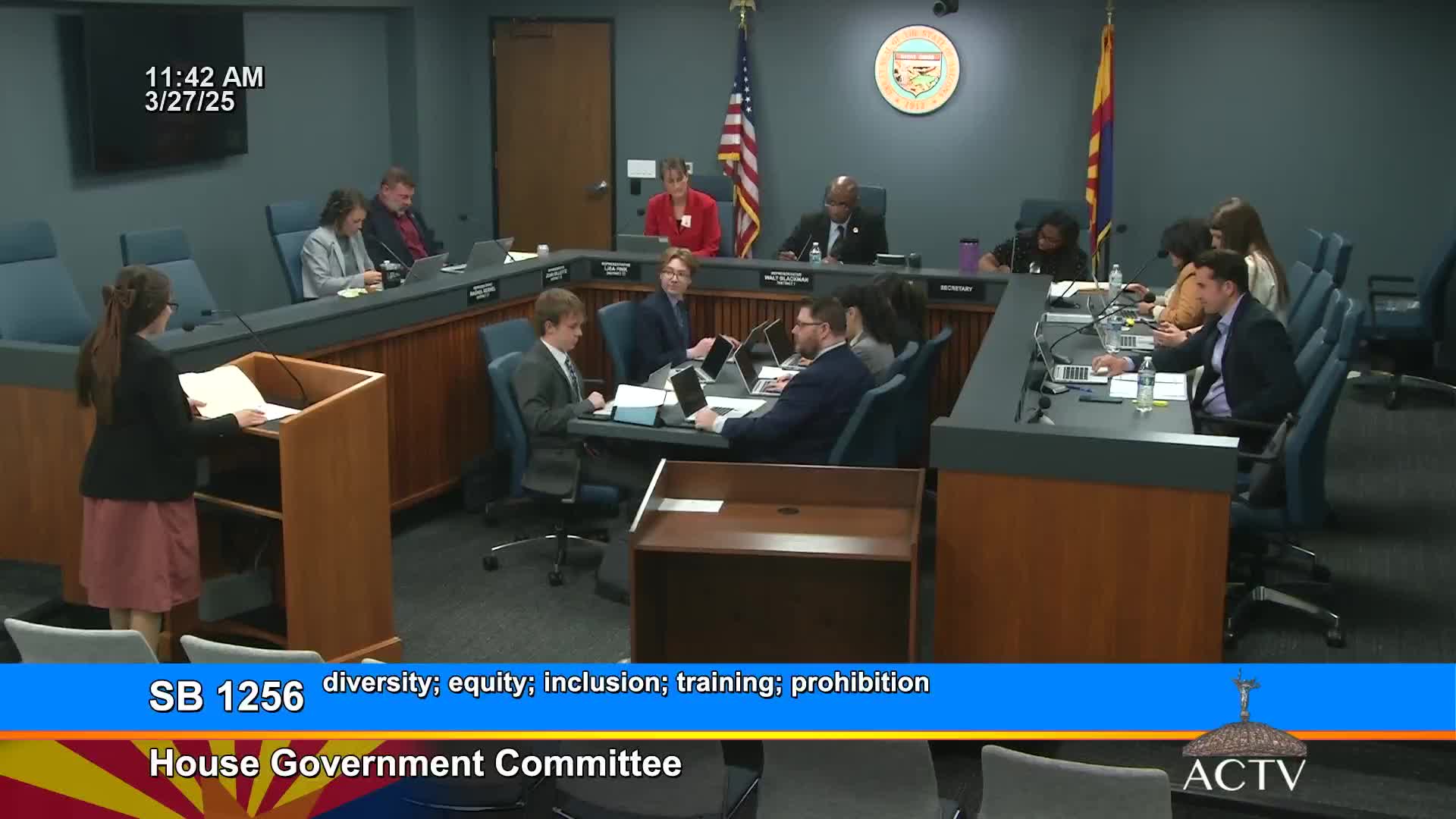
Committee gives SB 1256 due‑pass after lengthy DEI debate; Treasurer and multiple members weigh in
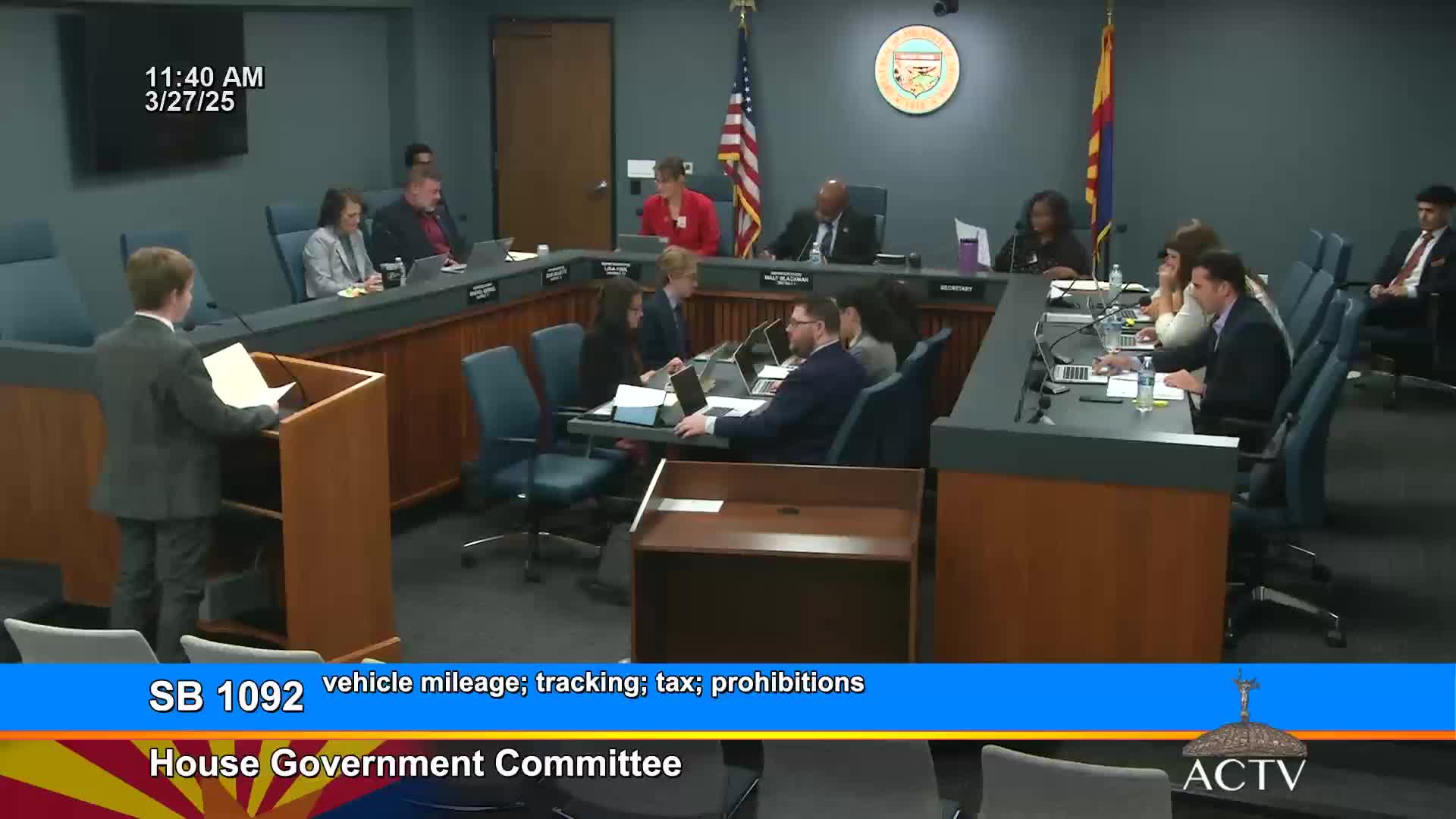
Committee returns SB 1092 proposing ban on vehicle‑miles‑traveled goals and VMT fees
